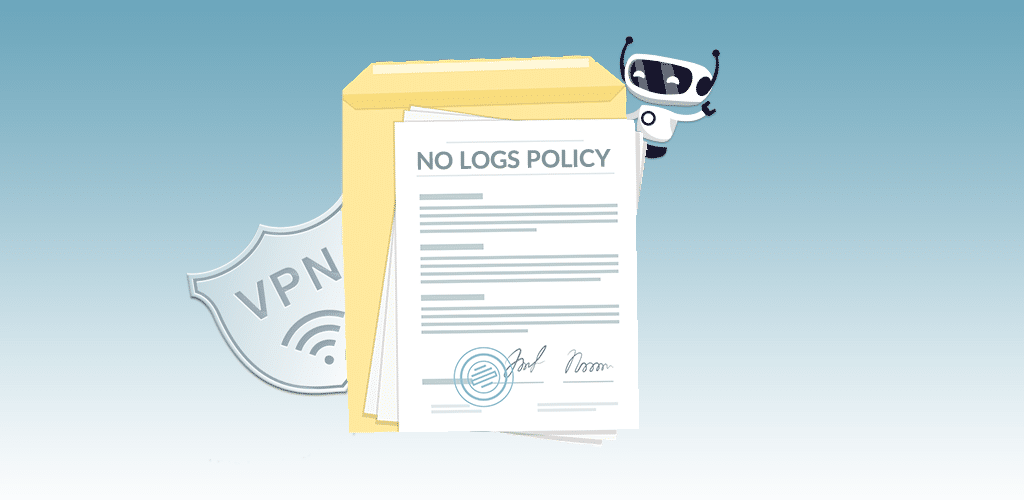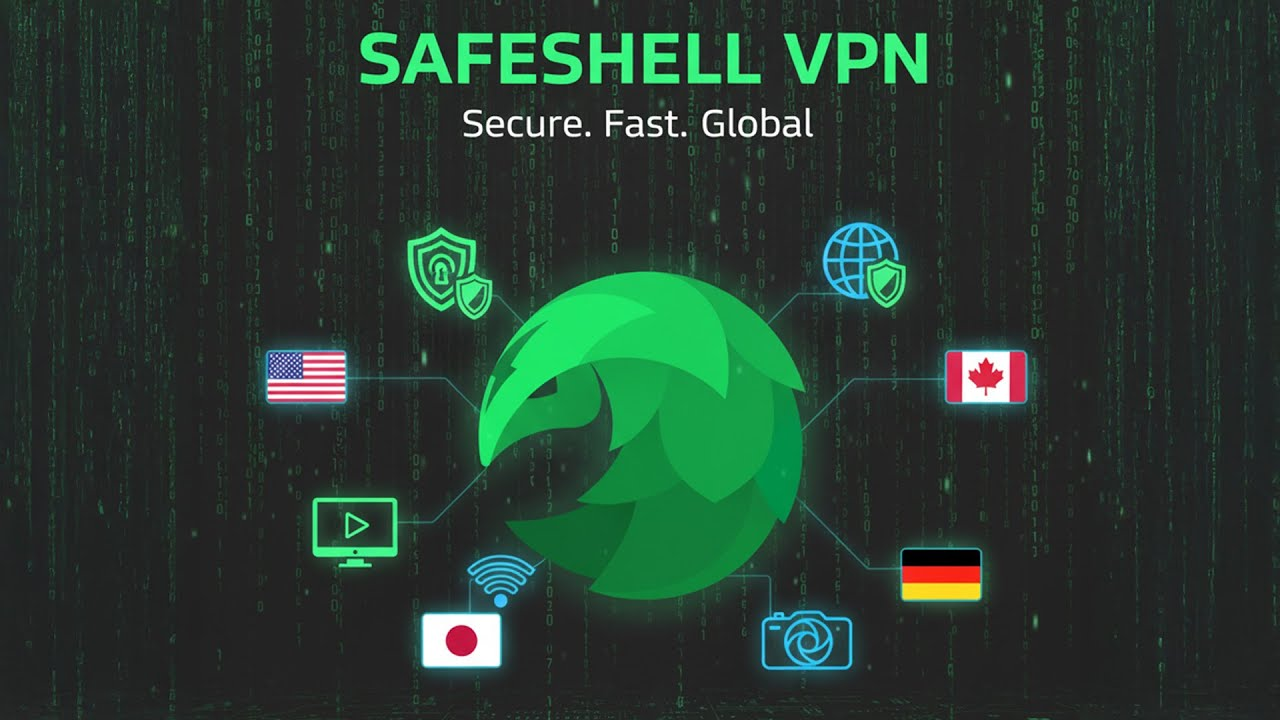SafeShell VPN's No Logs Policy: Your Privacy, Our Commitment
In an age where online privacy has become a battleground, knowing what happens behind the scenes with your VPN is critical. You might choose a VPN simply to binge-stream or access geo-blocked content, but what this really means is you’re placing trust in that provider with your traffic, your IP address, and your network life. That’s why the logging policy matters. With this in mind, let’s take a detailed look at the VPN service SafeShell VPN and its “no-logs” promise. We’ll explore what a no-logs policy actually means, why it matters, how SafeShell delivers on that promise, how it stacks up against other providers, and how you can independently verify these claims.

What Is a No Logs Policy?
Definition and Scope
A “no logs” policy states that a VPN provider does not record certain data about your online activity. Those records might include websites visited, traffic destinations, IP addresses you connect from or to, timestamps of connections, and perhaps other metadata. VPN user logs are dangerous because if recorded, they can be surrendered to authorities, sold, or stolen.
Difference Between No Logs and Zero Logs
‘No logs’ usually means: the provider does not record any recognizable user activity (websites, IPs etc). A more absolute statement is ‘zero logs’: nothing is ever logged, or only that which is impossible to tie to a user.
But the fact is subtle. Most authorities have emphasized the idea that there is no perfect zero-log VPN since operationally, some minimal metadata can be kept (to prevent abuse, network health, etc).
Importance for User Privacy
If your VPN company maintains detailed logs, it is accessible to law enforcement or hackers, or revealed by subpoena. Without it, there is nothing to hand over. When the VPN provider does not retain logs of the user activity... even when a law enforcement agency compels the company to hand over their log record, they will have no data to examine regarding user activity.
This way, the genuine no-logs method implies that the browsing history, download logs, source IP, and destination IPs are all disconnected from your identity, even in the worst-case legal/breach situations.
Why a No Logs Policy Matters
Improved Privacy Protection.
The purpose of your VPN launch is: to encrypt data, hide the IP, and prevent tracking. When the provider records your activities, the advantage is diminished. A good no-log policy is where your provider has no clue what you do and who you are.
Safeguard Against Data Requests
Imagine your provider is subject to a court order. In case they maintained a log of IP addresses, time stamps, and destinations of the traffic, it could be supplied. Instead, when the provider really did not keep anything, there is nothing to hand over.
Reduce Risk of Data Breaches
Logs are potentially good targets for hackers even without active legal requests. If your provider stores logs of IP addresses, visited sites, or destinations, that becomes a liability.
SafeShell VPN’s No Logs Commitment

Transparent Practices
SafeShell VPN has a strict no-logs policy: browsing history, connection time, or IP addresses are not kept.
What this implies is that when using the service, there is theoretically little data about what your activity is stored that can be accessed or disclosed. SafeShell VPN makes clear that they do not keep identifiable activity logs. This level of clarity is a good sign.
Independent Third-Party Audits
External audits or real-life tests prove the best log-policies. SafeShell refers to an independent confirmation of the no-logs claims. That being said, access to complete audit reports or breakdowns does not seem to be as widespread as some of its long-standing competitors.
This is a plausible statement, but you can request audit documentation, should you require all possible assurance, as per your threat model.
Secure Server Infrastructure
SafeShell also focuses on a secure infrastructure: military quality encryption (AES-256), leak protection (DNS, IPv6, WebRTC), and their own ShellGuard protocol. When the underlying architecture is solid and built for privacy, the no-logs claim gains more weight.
Comparing SafeShell VPN with Other Providers
Proton VPN
Proton VPN has a strong no-logs promise: they claim they do not collect, store and track your online browsing and have undergone numerous independent audits that confirm it.
So, on paper and through audits, they are very robust.
However, there is a twist to it: when you are selecting SafeShell VPN, you are selecting not only a promise of no logs but also a promise of performance, streaming, ease of use, and the same promise of privacy in a form of a provider that emphasises those things as its core.
In case you regard audit-history a little bit higher than features, Proton VPN can get an advantage. However, when it comes to the best combination of promise of privacy + advanced level of usability + streaming optimisation feature, SafeShell VPN is highly competitive.
ExpressVPN
ExpressVPN is serious about the no-logs statement: they mention that they store no activity logs, no connection logs, and their servers are designed on RAM only, so that nothing is stored in a persistent form.
Again -- very strong. They are said to be benchmarks in terms of logging policy in the industry.
That is where the SafeShell VPN is introduced: as ExpressVPN might have the longest and most visible audit history, the SafeShell VPN is equally basic in terms of privacy guarantees and provides a combination of additional features and comfort (global mode/app mode, streaming server optimisation). In that case, assuming that you do not mind having fewer publicly disclosed audits but wish to have the full-fledged functionality and a robust no-logs position, SafeShell is a very strategic choice.
Norton VPN
In its latest audit of 2025, Norton VPN also maintains a no-logs policy. Nonetheless, considering the big picture of comparison, Norton lacks the same brand-privacy and streaming/feature prestige as SafeShell VPN and the two others when the two combine privacy and usability.
Therefore, by using SafeShell VPN instead of Norton, you will be opting to use a provider that prioritises privacy and performance (e.g., streaming, apps, ease of use) and has a solid no-logs policy.
How to Verify a VPN’s No Logs Policy
Review Audit Reports
Look for named external auditing companies, published reports, and transparency of tests of servers or infrastructure. When they are offered by a VPN, you are more likely to believe the no-logs promise.
Otherwise, you cannot assert that the statement is false, but you are not so much independently verifying.
Examine Privacy Policies
Read the policy used by the provider: What information do they claim to gather? So what they do not collect? Are exceptions (abuse logs, connection metadata) available? How and at what time is data deleted or purged?
In the case of SafeShell VPN, their privacy policy is up-to-date, and it enumerates the possible personal data collected and its purposes.
The text does not mention that we collect browsing history or store timestamps/IP addresses, so it is a positive sign.
Check Transparency Reports
Determine whether the provider has published a report on law-enforcement requests, the number of received, the number of accounts given over, and the availability of logs. This is contained in the stronger providers.
When the provider replies with we got zero requests since we do not have any logs and proves the statement, it is powerful. In case no publication is made, enquire of them.
Additional Privacy Features of SafeShell VPN
No-Logs DNS Servers
SafeShell focuses on leak protection: DNS, IPv6, and WebRTC leaks are blocked. They have a high level of encryption and protocols in their infrastructure to reduce the risk of exposing their activities.
Your DNS queries do not leak out even when you are connected via a server; your real IP is not seen; no one can see what you are browsing.
Anonymous Payment Options
The other aspect of privacy is payment method. When you use it on a credit card and your account is connected to your name, then it may still be in some form or used even without maintaining any logs.
SafeShell gives no account required options on mobile store listing with a call to minimum identity linking. When you add that on top of anonymous payment (crypto, gift cards) you make the unlinkability of your usage more powerful.
Conclusion
When privacy matters to you, then you must care about whether your VPN keeps logs. SafeShell VPN is a company that not only makes a bold claim of zero logging but also has an explicit policy and security infrastructure that substantiates it. SafeShell is very suitable for lots of users, especially those who want to access streaming and have good privacy.
In case of a moderate threat environment (you simply do not want to be tracked, hide your IP, unlock content), SafeShell provides a good trade-off between privacy and performance. You may search a little deeper in audit documentation and transparency history in case you find yourself in a very high-risk situation (government adversary, serious surveillance issues, etc.).
In both scenarios, it is important to select a VPN that has a strong no-logs policy, such as SafeShell. Because if the provider keeps your data, the advantage of using a VPN would be reduced considerably.



